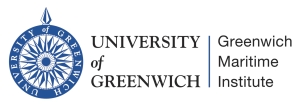Many shipping- and trade’s associations have been established in the United Kingdom since the nineteenth century. However, the UK Chamber of Shipping in its current form dates only from 1975. In 1878, most of the above mentioned associations agreed to support the formation of a national trade association, the Chamber of Shipping of the United Kingdom. This rapidly became the dominant trade association for shipping and most of the older, regional associations became members. The Chamber’s forerunner was granted a Royal Charter in 1921, and in 1975 merged with the Shipping Federation, which was formed as an employers’ association in response to increasing trade union activity in 1890. In 1992, the forerunner was renamed as the Chamber of Shipping and was re-branded as the UK Chamber of Shipping in 2012, to emphasize its identity.
The Chamber is recognized by the UK Government, EU institutions and other national and international organizations as the focal point for consultation with the British shipping industry on regulatory and other key developments, thus giving it advance notice of forthcoming changes. The Chamber has a well-developed mechanism and communication channels for promulgating relevant information throughout the industry, Government, Parliament, international organizations, unions, general public as well as media.
The mission of the Chamber is to champion and protect the UK shipping industry on behalf of its around 140 members from across the maritime sector, representing over 28 million DWT members. They are passionate about UK shipping and work to champion its future success and London’s status as the premier global maritime centre. The Chamber work closely with Government, Parliament, policy makers and other parties to:
1. Gain recognition of shipping’s contribution to the UK economy and employment;
2. Make clear the impact of upcoming and existing legislation on the future of shipping in the UK;
3. Bring them together to work with the UK shipping industry and the related national, European and international maritime organizations.
The UK Chamber of Shipping has five committees covering the most prominent policy areas for UK shipping within its membership and three sector panels to deal with issues affecting particular sections of the shipping industry. The Chamber is monitoring the new developments of shipping and other relating spheres, it proposes and agrees policy, it represents that policy to the appropriate audiences, aims at the adoption of its policies and at ensuring their implementation. The Chamber works with a range of national and international regulators, maritime and trade bodies across the industry, which often have common goals in terms of lobbying and political activity and championing the profile of maritime activities. The UK Chamber is often active within this cluster to help the UK maritime industry to achieve its common goals.
According to ‘The economic impact of the UK maritime services sector’ published by Maritime UK in December 2012, the maritime services sector made an estimated £13.8 billion direct value-added contribution to GDP in 2011, equivalent to 0.9% of the UK economy. It is estimated that the maritime services sector created approximately 262,700 jobs in 2011 or 0.8% of total UK employment. Moreover, including direct, indirect and induced impacts, the maritime services sector is estimated to support 634,900 jobs, or 1 in every 50 jobs in the UK. Moreover, once these multiplier effects are accounted for, the sector makes a value added contribution to GDP of £31.7 billion, equivalent to 2.1% of the UK economy. The above mentioned figures imply that the maritime industry is a larger employer, contributor and producer for UK national economy. And furthermore, these figures indicate that the role of the UK Chamber of Shipping is really important not only for the British shipping but for the whole British economy, now and in the future.
Hsien-Chang Yang, MA International Maritime Policy Student
